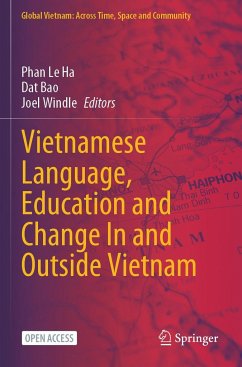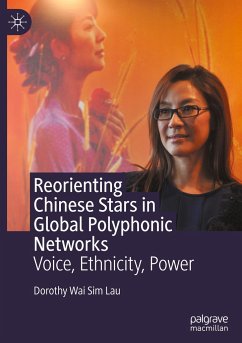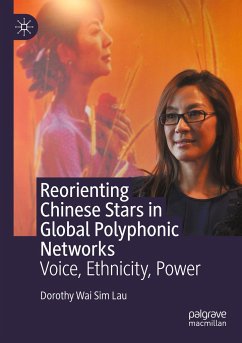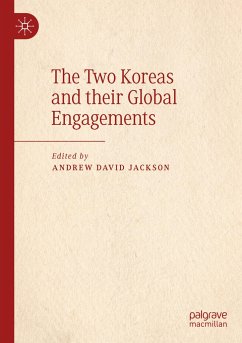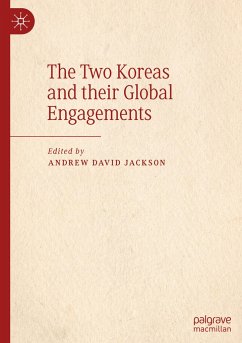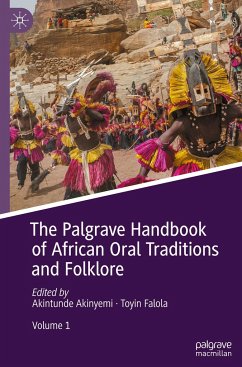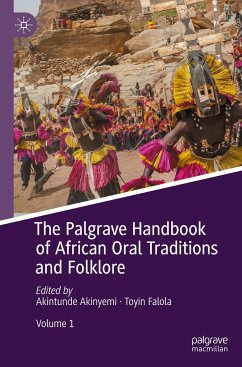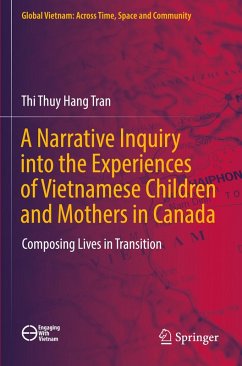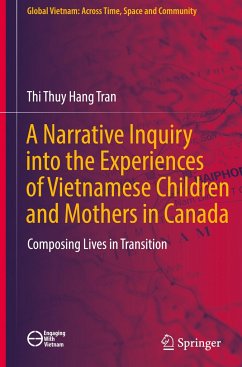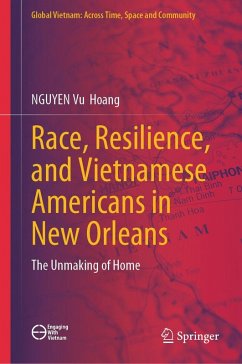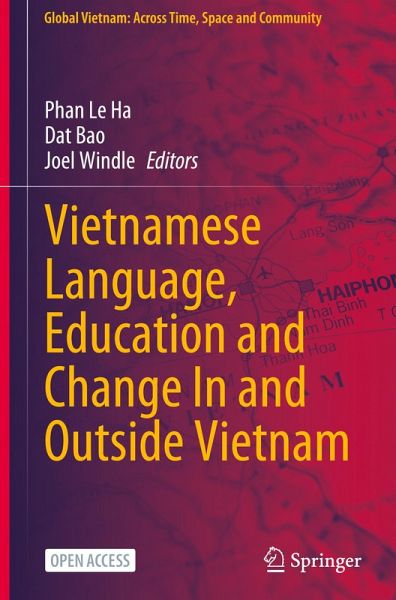
Vietnamese Language, Education and Change In and Outside Vietnam
Versandkostenfrei!
Versandfertig in 6-10 Tagen
38,99 €
inkl. MwSt.

PAYBACK Punkte
19 °P sammeln!
This open access edited book attempts to break new ground in investigating multiple facets of Vietnamese language, education and change in global contexts, engaging with global Vietnam through complex lenses of language and education. Issues of language, globalization, and global identities have often been framed through the lens of hierarchical/binary power relations, and/or through a dichotomy between hyper-central languages, such as English, and revisualized or marginalized local language and cultures. In this book, this dichotomy is turned on its head by considering how Vietnam and Vietnam...
This open access edited book attempts to break new ground in investigating multiple facets of Vietnamese language, education and change in global contexts, engaging with global Vietnam through complex lenses of language and education. Issues of language, globalization, and global identities have often been framed through the lens of hierarchical/binary power relations, and/or through a dichotomy between hyper-central languages, such as English, and revisualized or marginalized local language and cultures. In this book, this dichotomy is turned on its head by considering how Vietnam and Vietnamese are constructed in and outside Vietnam and enacted in global spaces of classrooms, textbooks, student mobility, community engagement, curriculum, and intercultural contacts. Vietnamese is among the world's most spoken languages and is ranked in the top 20th in terms the number of speakers. Yet, at the same time, as a 'peripheral' or 'southern' global language as often seen in the Global North-Global South spectrum, the dynamics of multilingual and multicultural encounters involving Vietnamese generate distinctive dilemmas and tensions, as well as pointing to alternative ways of thinking about global phenomena from a fresh angle. Rather than being outside of the global, Vietnamese - like many other 'non-central' global languages - is present in diasporas, commercial, and transnational structures of higher education, schooling, and in the more conventional settings of primary and secondary school, in which visions of culture and language also evoke notions of heritage and tradition as well as bring to the fore deep seated ideological conflicts across time, space, communities, and generations. Relevant to students and scholars researching language, education, identity, multiculturalism, and their intersections, particularly related to Vietnam, but also in Southeast Asia and beyond, this volume is a pioneering investigation into overlooked contexts and languages from a global, southern-oriented perspective.
"This book presents an eclectic collection of 15 chapters unified by an interest in developing and teaching the Vietnamese language. To my knowledge, there has been no previous attempt to make the national language of Vietnam a focus for as many perspectives as are documented in the book. In this regard, the book makes an original and intriguing contribution to the literature on Vietnamese culture, including the culture of Vietnam's expanding diaspora. The book is pioneering in the extent to which it draws attention to the many roles played by a national language in a nation's political, social and cultural development. It also documents the challenges of preserving a national language in settings where it is at risk of being marginalized. It is pleasing that so many of the contributing authors are young Vietnamese scholars who can provide a distinctly Vietnamese perspective on concepts and practices of global significance."
- Dr. MartinHayden, Emeritus Professor of Higher Education, Southern Cross University, Australia
"Vietnamese Language, Education and Change In and Outside Vietnam brings together an excellent collection of chapters that highlight the diverse and important but under-explored roles Vietnamese language plays in different settings within and outside Vietnam. The fifteen chapters of this much needed book provide unique insights into various aspects and meanings of Vietnamese language. Collectively, the volume contributes to broadening our view about the evolution and transformation of Vietnamese language under the impacts of local, national, regional and global forces. The book invites readers to engage in a reflective and intersectional approach to rethinking and re-examining our understandings of the changes and developments of Vietnamese language over the history of the country."
- Dr Ly Tran, Professor, Centre for Research for Educational Im
"This book presents an eclectic collection of 15 chapters unified by an interest in developing and teaching the Vietnamese language. To my knowledge, there has been no previous attempt to make the national language of Vietnam a focus for as many perspectives as are documented in the book. In this regard, the book makes an original and intriguing contribution to the literature on Vietnamese culture, including the culture of Vietnam's expanding diaspora. The book is pioneering in the extent to which it draws attention to the many roles played by a national language in a nation's political, social and cultural development. It also documents the challenges of preserving a national language in settings where it is at risk of being marginalized. It is pleasing that so many of the contributing authors are young Vietnamese scholars who can provide a distinctly Vietnamese perspective on concepts and practices of global significance."
- Dr. MartinHayden, Emeritus Professor of Higher Education, Southern Cross University, Australia
"Vietnamese Language, Education and Change In and Outside Vietnam brings together an excellent collection of chapters that highlight the diverse and important but under-explored roles Vietnamese language plays in different settings within and outside Vietnam. The fifteen chapters of this much needed book provide unique insights into various aspects and meanings of Vietnamese language. Collectively, the volume contributes to broadening our view about the evolution and transformation of Vietnamese language under the impacts of local, national, regional and global forces. The book invites readers to engage in a reflective and intersectional approach to rethinking and re-examining our understandings of the changes and developments of Vietnamese language over the history of the country."
- Dr Ly Tran, Professor, Centre for Research for Educational Im



